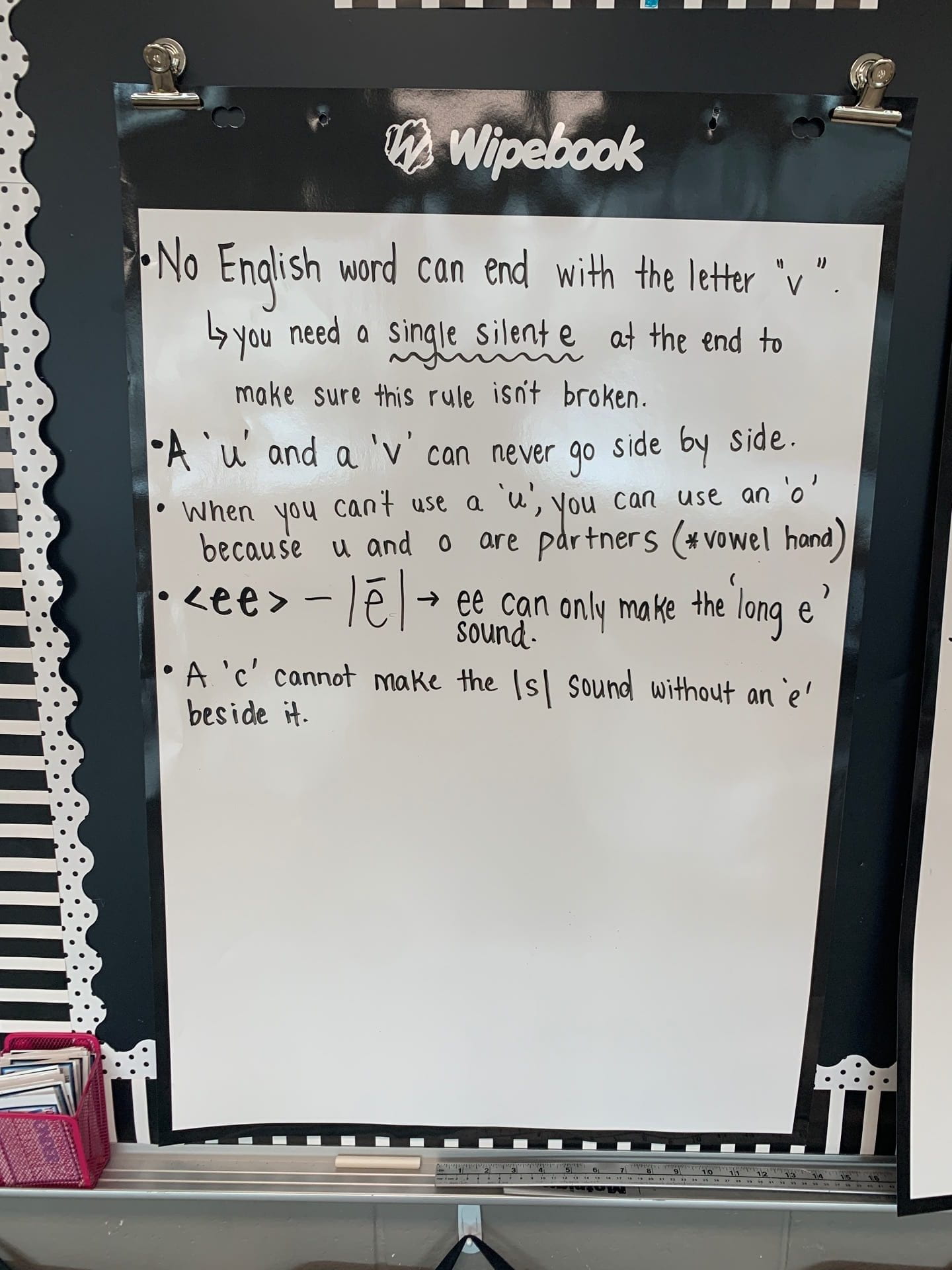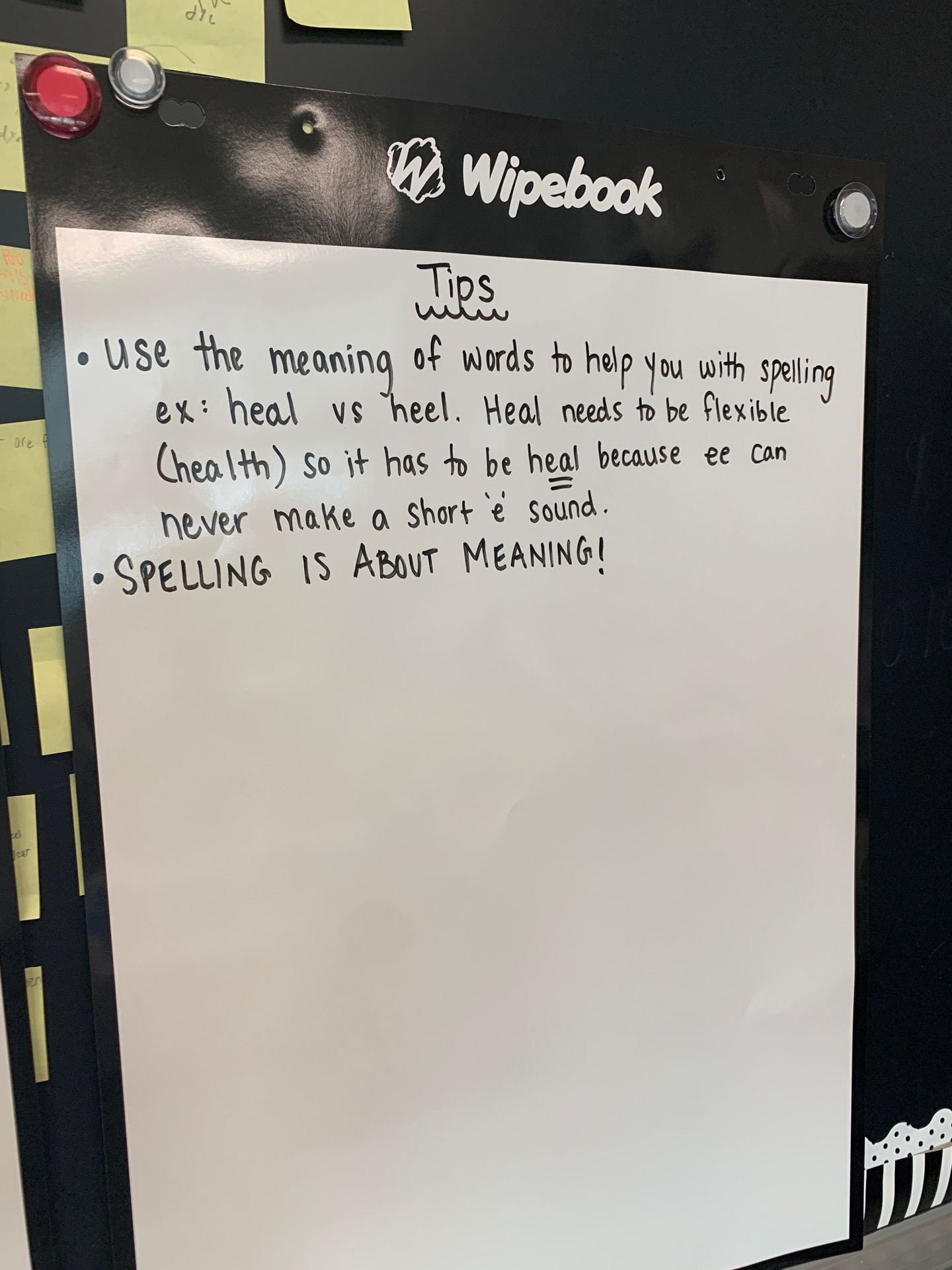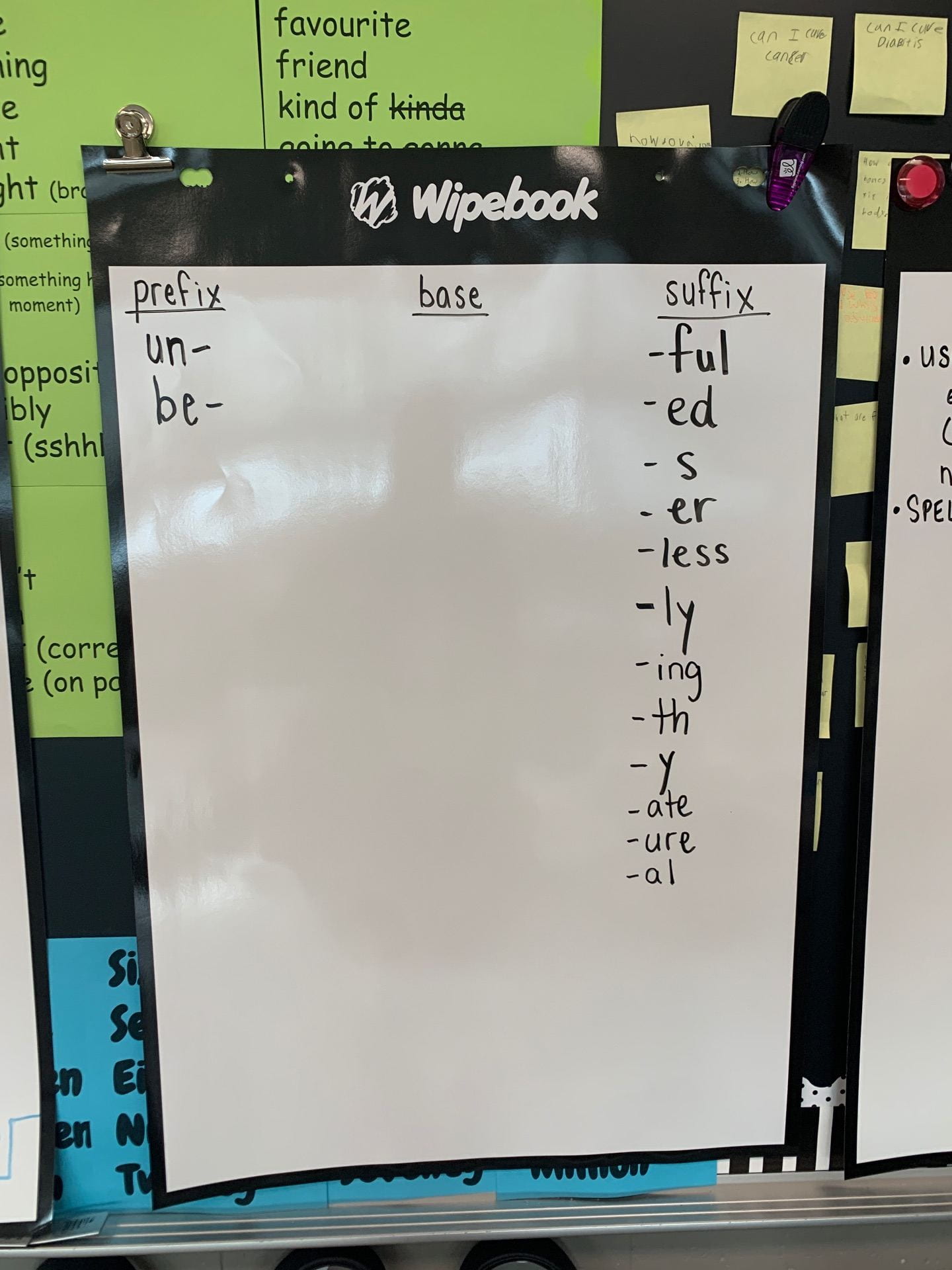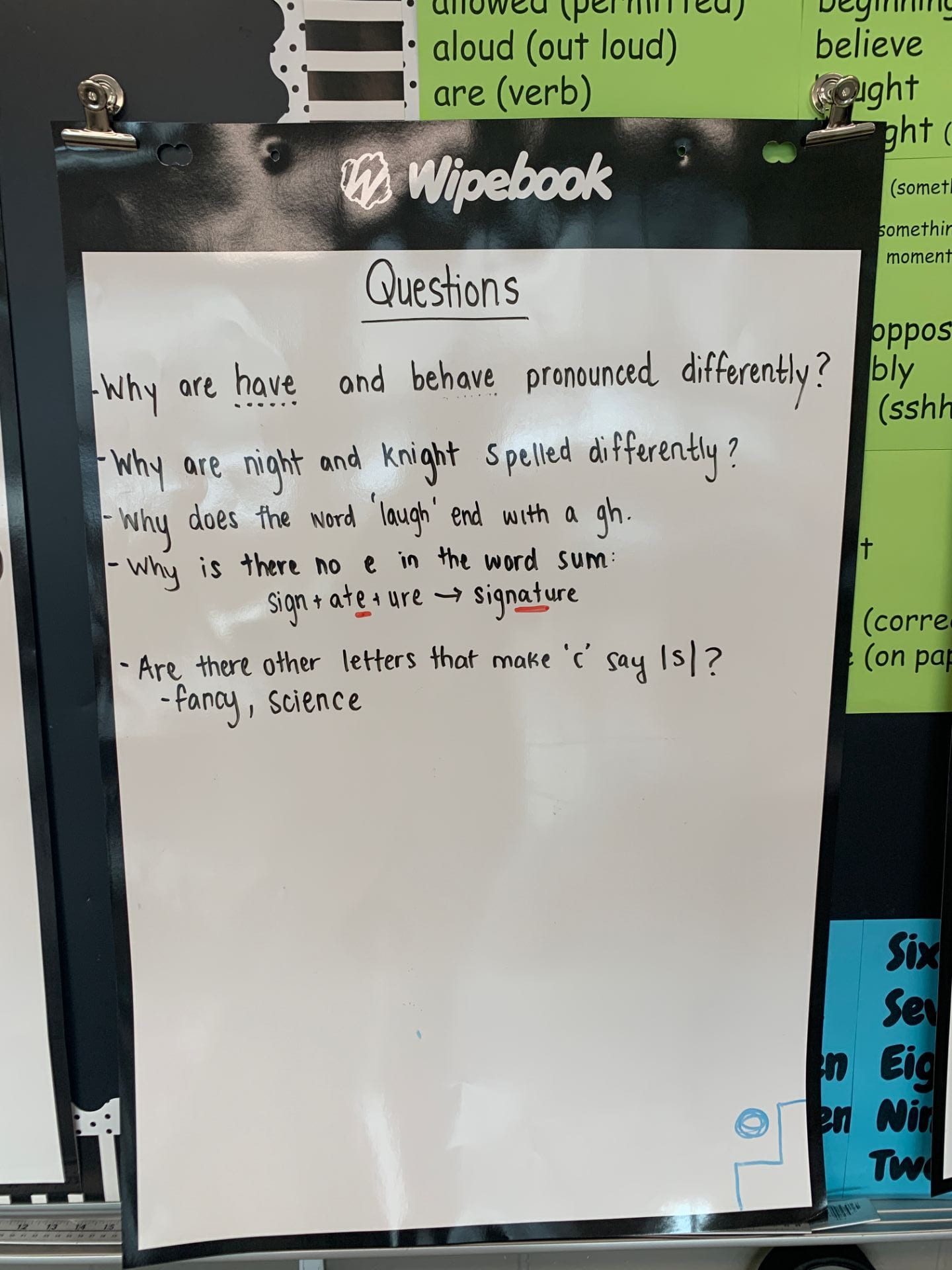Structured Word Inquiry
One of my goals as a teacher is to help students see that WE ALL have areas where we shine, and areas where we may not be as strong.
One of those ‘not so strong’ areas for me is that I am a terrible speller. This can be pretty embarrassing as a Language Arts teacher. Fortunately, I’ve developed tools and strategies that work for me over the years. I know how important it is to ensure things are spelled correctly before pressing send or publish. So I read, and reread my work over and over, even for something as simple as a text. Spellcheck and predictive text have been blessings in disguise for me. I often know when something just doesn’t look right, and so I check dictionaries and definitions to make sure I’m saying just what I want to say.
You can imagine my excitement then, when Mrs. Reichstein, our director of Special Education, told me that English spelling is not just a guessing game. There are rules and strategies, that if you know them, you almost always can spell a word correctly!
I needed to learn more.
I started working with her one on one last year, and began learning a few new rules that just BLEW MY MIND. I knew these invaluable strategies would be helpful to my students as well.
Last week, she started coming in to teach our class some of these rules, and the energy during her lessons is palpable. There were so many “Aha” moments, and we can’t wait to learn more!
Here are some of the rules we’ve learned so far through investigation:

We learned a few tips to help us as we go…

We’ve started a running record of prefixes and suffixes to help us as we write…

And we’re keeping track of questions we have so that student voice guides each lesson, showing that we own our own learning…

This past week we learned that to make the letter C say |s| it must be followed by an E. But as Mrs. Reichstein tells us, don’t take her word for it! Be investigators! Can you find words that don’t follow this rule? We already thought of “fancy” and “science”. Can you think of any more?
As you make discoveries, please comment below. Or if you have any questions, comment and let us know! We’ll add them to our question board and share our discoveries about why they may break the rule.
The problem with rules is that there are always exceptions!
“No English word can end in the letter ‘v'”
While “rev” the noun is an abbreviation for the word “revolution”, when used as a verb, it is a word in its own right – Merriam Webster has the following:
3: to make more active or effective —used with up
revving up the economy
4: to stir up : EXCITE —usually used with up
revved up the kids before bedtime
Another word that my daughter came up with is “shiv”
While it is slang, it is in the dictionary
“A ‘u’ and a ‘v’ can never go side by side”
The word “uvula” immediately came to mind!
There’s also:
Juvenile
Duvet
Rejuvenate
Souvenir
“A ‘c’ cannot make the ‘s’ sound without an ‘e’ beside it”
A ‘c’ also makes an ‘s’ sound with an i or y beside it!
city
cyst
cycle
civil
acid
Yes!! Thank you for your comments and examples, Helen. We absolutely want to challenge each of these rules. I will add your words to our list and see if we can understand WHY these words break the “rule”. Maybe they’ll help us uncover some other rules…
Brilliant questions Helen! I was so proud of Joey when he brought up rev as an example. Rev is a clip from the word revolution and has morphed into everyday usage. It is not a full complete English word although it is acceptable to use now. These rules follow ENGLISH orthography. We use many words in English that are borrowed words from other languages that we kept as is from that language. No English word ends in the letter < i > yet we know that ski, tortellini and so many more do – ski is a borrowed word from Norwegian and all the Italian words we use are just that, Italian words and many of those do end in < i >. As you mentioned shiv – which I hadn’t heard of is slang. It’s not a full complete English word – and our rules only pertain to full complete English words.
I love the list of words you name with < u > and < v > – I didn’t look up them all – but they are definitely French words. The same way that in English words with < ch > are prounounced /ch/ like in chip. But in French words < ch > is pronounced /sh/ like in ship. (Chef) is a perfect example. This is a French word borrowed into English but left its French spelling. I love juvenile and rejuvenate – they are words from the same family – how exciting. Both have a French meaning of new, young (jeune).
Also love your evidence about the letter < c >. So far this is just a hypothesis that one student questioned about the word dance. The challenge was to prove or disprove the theory. What we will soon realize upon investigating is a < c > can only be pronounced /s/ if there is an < e >, < i > or < y > beside it. Our two words found so far were dance and fancy. As you can see from your list they all have an < e >, < i > or < y > beside them. How exciting!! Keep thinking. Your comments are awesome Helen!
This is what it’s ALL about!!! We want critical thinkers. The discussions are live and vibrant and incredible.
Mrs. R.